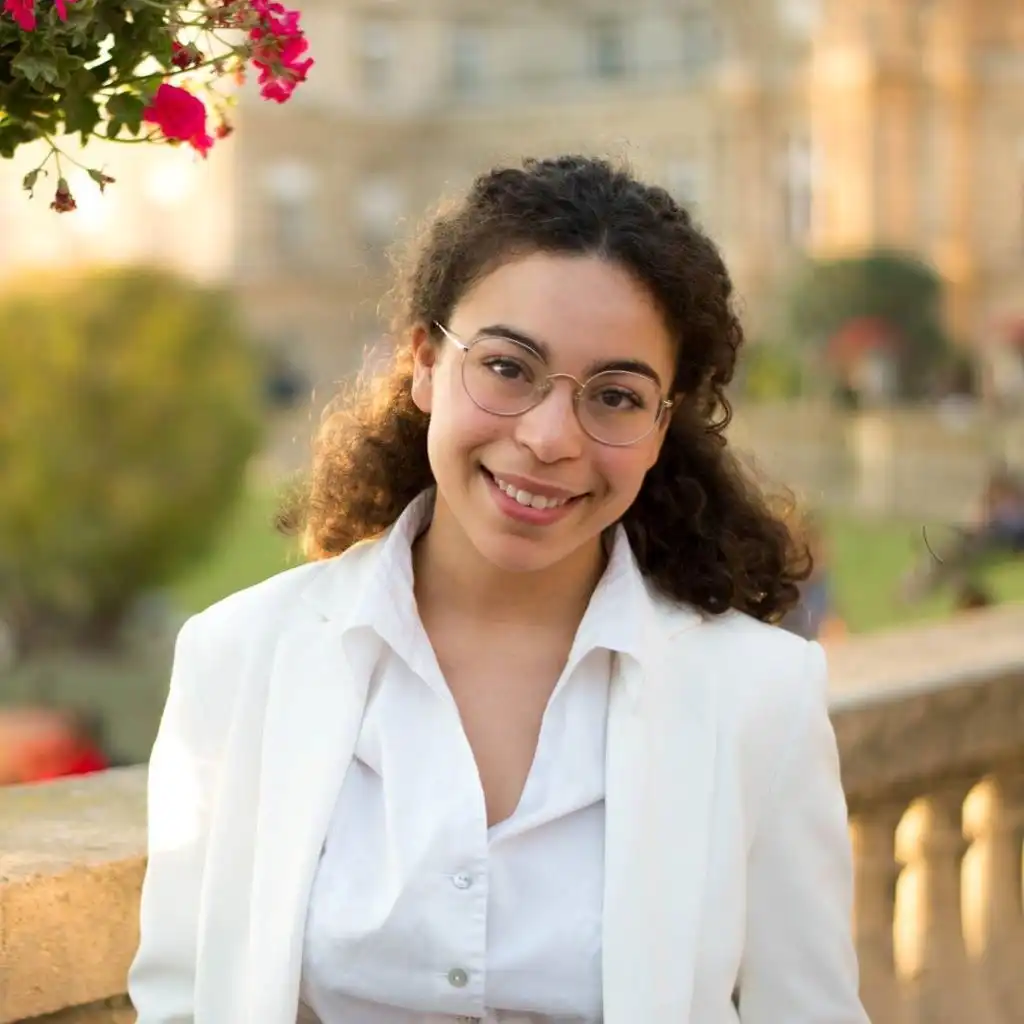Home>Mouna, Ministerial Conference for Feminist Foreign Policies
22.10.2025
Mouna, Ministerial Conference for Feminist Foreign Policies

Mouna Hamza has graduated in International Security with concentrations in the Middle Eastern/North Africa and diplomacy.
She works for the French Ministry of Foreign Affairs. She currently serves as Deputy Secretary General for the Fourth Ministerial Conference on Feminist Foreign Policies, scheduled to take place in Paris in October 2025. The three previous editions were hosted by Germany, the Netherlands, and Mexico. This year, approximately 60 States, international organisations, and civil society actors were invited to Paris to engage in discussions on feminist foreign policies as a multidimensional geopolitical issue.
What are your main responsibilities?
As the Deputy Secretary General, my role is to second the Secretary General of the Conference, Ambassador Delphine O in organizing the Ministerial conference. I work in a bigger team made up of diplomats and highly technical experts on feminist foreign policies. I’m responsible for logistics and protocol issues relating to organizing an international Conference, a tedious but essential part of the job. I am also in charge of supervising the strategic communication surrounding the Conference, and making sure that French narratives - those defending women’s rights and gender equality against the current conservative backlash - are well heard and understood by the greater public. In the very context of this Conference, I contribute to France’s advocacy in favor of advancing gender equality issues in multilateral and inter-governmental spheres. More specifically, I draft invitation letters, notes and editorials, I organize bilateral meetings at the ambassador level to secure the best possible representation at the Conference, I supervise the planning of logistics on the Conference venue.
How did you prepare for this job?
For several years now, I have tried to gather knowledge and build up a network within the French Ministry of Foreign Affairs. Before being hired on this position, I worked for the French Embassy in Cotonou, Benin, in Francophone West Africa. I worked on very different issues (mostly on contributing to the implementation of the diplomatic renewal of our ties with the African continent) but this experience was instrumental in securing my current position.
What is the most fascinating part of your job?
The most fascinating part of my job is certainly the political advocacy towards Foreign governments. This Conference sets a very ambitious goal of reuniting 60 Foreign ministers and getting them to agree to some of the Conference’s deliverables. As such, part of the job is specifically to advocate for the highest possible ministerial representation at the Conference and getting countries to reaffirm their pledges to a United Nations agreed language on women’s rights and gender equality.
How did your PSIA experience contribute to the position you hold today?
During my first semester at PSIA, I had the opportunity to take a course entitled “Diplomacy in Practice,” taught by Ursula Plassnik, former Austrian Foreign Minister. At the time, I didn’t realize just how valuable this course would be for the role I’m now pursuing. Rather than focusing on theories of international relations, Ursula Plassnik taught us the practical essentials: whom to contact to obtain information or extend invitations, and how to craft concise, impactful briefings that could land directly on a Minister’s desk. This course demonstrated to me the importance of having a clear knowledge of the way national and international institutions are interconnected and the administration around them is built.
More generally, PSIA’s international student atmosphere was a great introduction to the diplomatic world. The school’s working methods, area of studies and reading papers were a great reflection of the way multilateral spheres work and think today !
What advice would you give to current students?
Take advantage of everything Sciences Po can give them. Start building up your network as soon as you can, volunteer in an organisation, get political while staying open to contradiction. Get knowledgeable about international law, it is a great way to keep a clear mind on international affairs!
- More about the Master in International Security
- More about the Fourth Ministerial Conference on Feminist Foreign Policies
Information Sessions: Masters

Find out more about the Masters programs and the wide choice of specialisations offered by the 8 Schools of Sciences Po during our webinars dedicated to applicants.